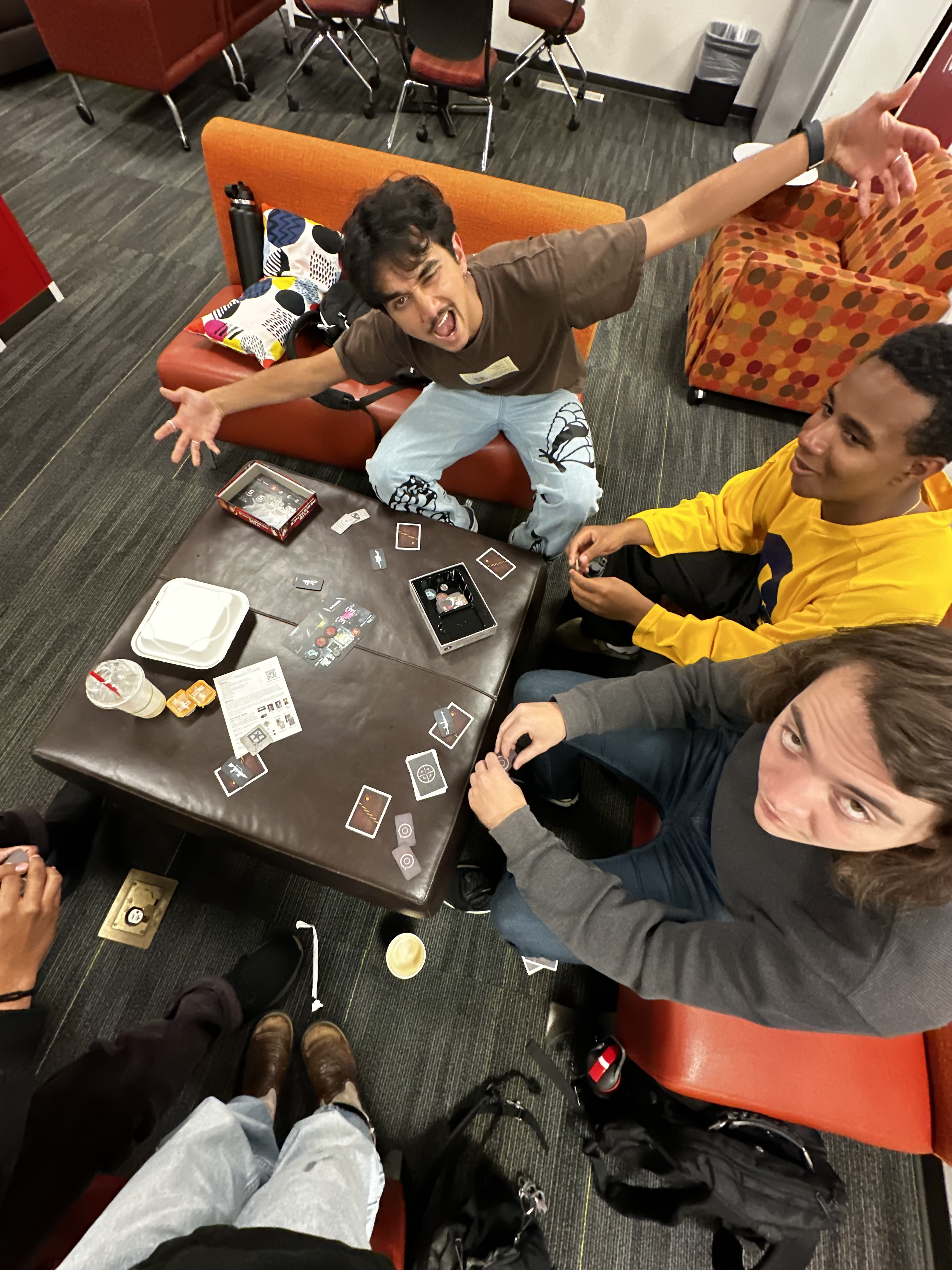I played The Resistance by Don Eskridge. This is a card/board game that can also be played online. It’s meant for players of any age who crave the overarching mathematical logic of social deduction games like Among Us.
This game emphasizes social deduction through several of its mechanics. As is standard in social deduction games, players’ roles are a mystery, and if played right, as are their actions. Because the win condition for the revolutionaries is to identify the spies and avoid putting them on missions, a few highly analytical dynamics arise.
Dynamics are similar between spies and revolutionaries. All players constantly analyze the fail/succeed cards after every mission, the vetoes before sending a team off, and even casual discourse to vet for liars. Similar dynamics actually arise in the spies, by identifying the other spy and winning together (by shifting blame and getting them on missions). Spies have additional dynamics such as lying (and frankly acting) to pose as a good guy, as well as rallying people to believe a revolutionary is actually a spy.
A few main aesthetics arise while others are not present at all.
There is no feeling of sensation, fantasy, or discovery because there’s no real story, minimal attempts at immersion into this world. We don’t get a good idea of what a mission actually means and as a result don’t get the risk of failing a mission. Some rounds I would let others do the deducing, but I progressively realized the game got much more fun the more I believed in this world. I strongly believe this game should be edited to heighten the stakes by creating a world you get invested in. This could be through additional lore, specifics about the mission, or even additional choices/mechanics to make us feel more like humans. Choosing to succeed (or fail) every mission removes all the nuance of actual human decision making.
When you are invested, however, there is a strong feeling of fellowship, but interestingly enough, you don’t know who your “fellows” are until the end. Throughout the game, I would find myself feeling connected to whoever else is on my team, especially if I was a spy looking for my partner. Though it could very well be anyone throughout the round, I knew they were looking for me as I was looking for them. Sounds romantic, right?
Our analysis failed so hard that on our final turn of our final round we put both spies on the mission. Sometimes I didn’t care about losing, other times I really did. It all depended on whether I decided to buy into the story and believe in the stakes (which were not outlined).
It’s clear that this is a social deduction game—in fact, it’s the rawest one I’ve seen. Eskridge has taken games like Mafia or One-Night Werewolf and stripped them of their worldbuilding and storytelling, leaving an analytical heap that logic-oriented players may enjoy more. Of course, there is still a huge aspect of lying (and acting in the card/board game) but it’s much more evidence based than mafia.
Among Us is in the same genre yet feels vastly different from The Resistance, which could be summarized as a version of the “Emergency Meeting” in Among Us, when players might decide to group up during missions or kick out a player. Among Us has actual playable “episodes” of mission failing/killing that act as player-made evidence. This adds another layer for deceit and conversation, but also a completely different degree of worldbuilding and immersion that makes people buy in so hard. I really missed that in The Resistance.
My experience was fairly neutral, and as I got a grip on the strategies and jokingly made up some lore for my friends going on their missions, it became fun. Attached is a pic!




